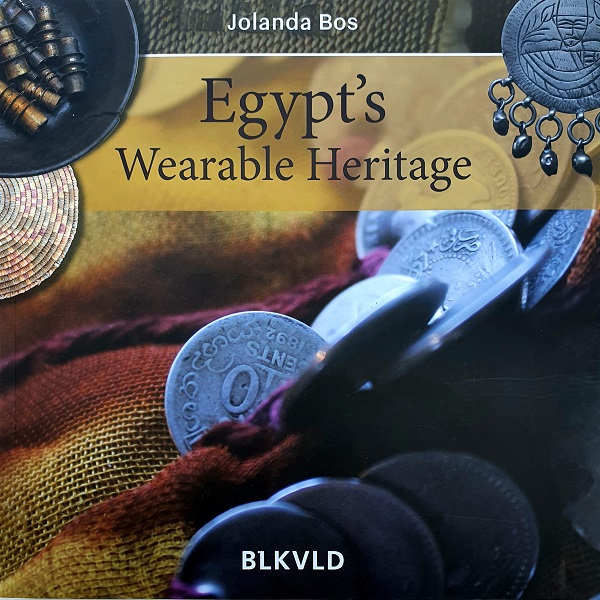Author: Jolanda Bos
Photographer: Various
Publisher: BLKVLD, 2016
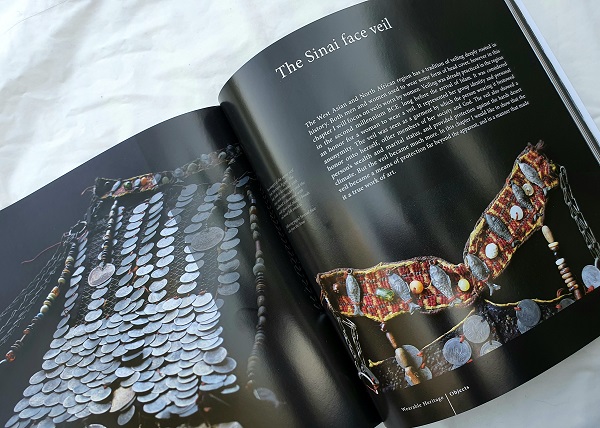
Format & layout
239 x 239 x 8.5 mm (9.4" x 9.4" x 0.35”)
Softcover
192 pages
ISBN 978-90-807744-4-5
Text and images on a white and coloured background background
English
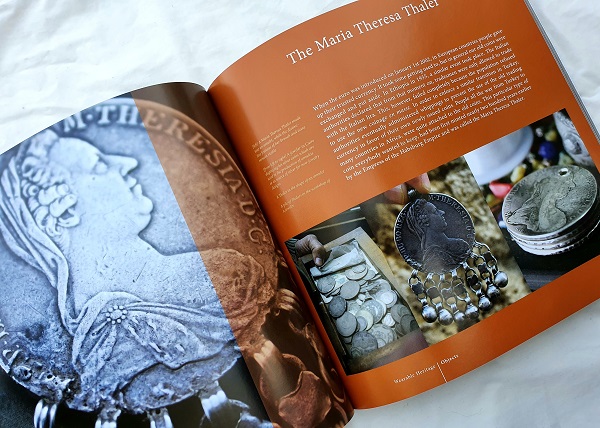
Photos, Illustrations & Diagrams
The book is richly illustrated with mostly colour images complimented by a few historical sepia and black-and-white images. The photos depict individual items, people wearing or using these items, as well as more scenic or contextualised images. The spreads are colourful and richly illustrated with photos in different styles and on a range of richly coloured backgrounds giving the book a luxurious and exotic ambience. The book contains one map of Egypt.
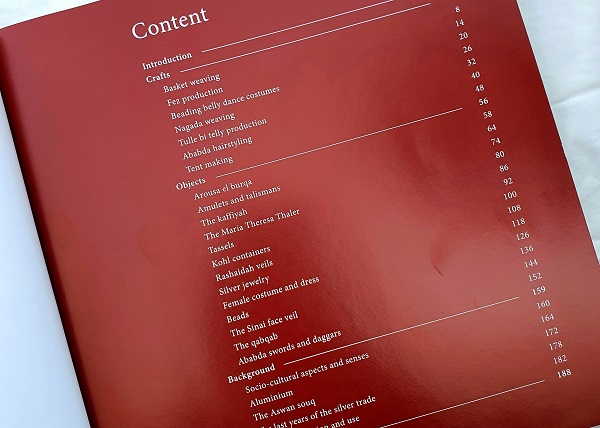
Introduction
Jolanda Bos has been studying and working as an archaeologist and Egyptologist for more than 25 years. She specialises in dress and wearable heritage such as beadwork, hairstyles, jewellery, makeup containers, and bodily adornments.
Jolanda shares her deep love and curiosity for the small things that say so much about Egypt and her people. Who they are, where and how they live, what they believe in, what they wear, how they celebrate, and how they adorn themselves. Because these items are small and often made from fragile materials, they deteriorate, get lost, or are sold and otherwise removed from the culture they belong in.
In this book, Jolanda shines the light on a part of the heritage that often goes unnoticed and is unprotected, and undervalued.
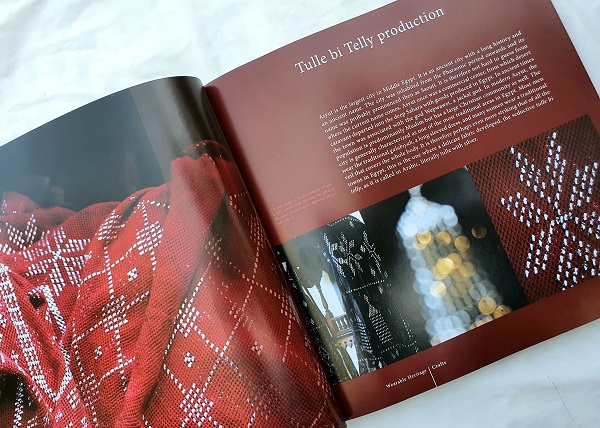
Content
The book is divided into three sections: Craft, Objects, and Background. Each section is divided into chapters describing a selection of topics.
In the Craft section, she covers topics such as weaving, beadwork, tulli bi telli, etc. In the Object section, she looks at items such as amulets and talismans, tassels, kohl containers, face veils, and others. Under Background, she delves into the socio-cultural aspects, souks, the silver trade, etc.
Each chapter is richly illustrated and is filled with historical context, stories, and descriptions of how each form of wearable heritage fits into Egyptian society.

Conclusion
The book has a luxurious and exotic feel to it. Paging through it evokes the ambience of a souk. Small treasures are beautifully photographed and described in an informative yet accessible way. By her own admission, Jolanda chose the topics covered in this book based on her preference and her collection of artefacts.
“If my goal was to describe all aspects of Egypt’s wearable heritage, this book would be nowhere near complete – a large variety of topics could have been added.”
This book is an introduction to the world of Egyptian wearable heritage, and it is a small peak into the culture in which it lives. Although it contains many facts and information based on Jolanda’s research and fieldwork, this is not an academic book. It is meant to be read by those who appreciate the artefacts and want to understand the story and history surrounding them.

About the author
Jolanda E.M.F. Bos, is an archaeologist and dress anthropologist. Her research fields comprise archaeological beadwork analysis, contemporary costume, personal adornment (as the combination of dress, body decoration, veils, jewellery and amulets) and the social implications of dress.
Over the last twenty years Jolanda has been working at several excavations in Egypt (at the moment at Tell el Amarna, Egypt) and the Netherlands, as well as on museum exhibits both in the Netherlands and in Egypt. At present, she studies ancient Egyptian hairstyles from Tell el-Amarna at the University of Leiden (the Netherlands) as part of her PhD research.
Jolanda is the author of several articles and books and regularly lectures on the subject. She is also the driving force behind the
Wearable Heritage website. Wearable Heritage is also on
Instagram account and
Facebook.
Further reading on Egyptian heritage
Blog posts:
Webinars: (recordings accessible to
Friends of The Zay
Zay: (Arabic: costume, Pl. azyaā’), a set of clothes in a style typical of a particular country or historical period.)
- Shahira Mehrez: Dress & Identity: Cultural, Economic and Political Implications
- Andrea Rugh: What Egyptian dress tells us about symbols
- Sigrid van Roode: Roses, Musk, and Ambergris: Fragrance, Jewellery and Dress.
Book reviews:




